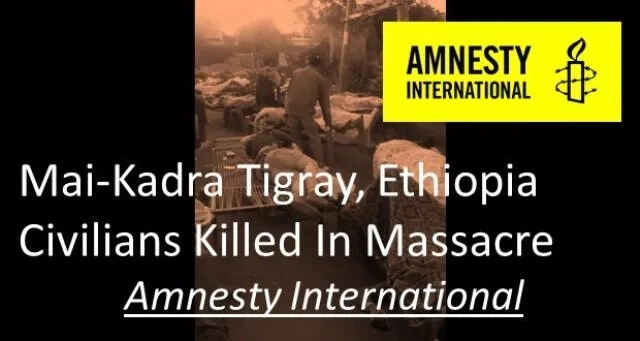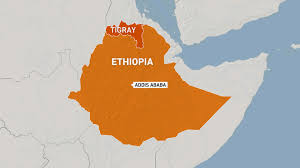
UNITED NATIONS PRESS RELEASE
For immediate release
Statement by the Special Adviser of the Secretary-General on the Prevention of Genocide, Alice Wairimu Nderitu, on the situation in Ethiopia.
(New York, 5 February 2021) The United Nations Special Adviser on the Prevention of Genocide, Ms. Alice Wairimu Nderitu, is alarmed by the continued escalation of ethnic violence in Ethiopia and allegations of serious violations of International Humanitarian Law and Human Rights in the Tigray region.
The Special Adviser has received reports of serious human rights violations and abuses, committed by the parties to the conflict in the Tigray region and their allies. These include extra- judicial killings, sexual violence, looting of property, mass executions and impeded humanitarian access. Ms. Nderitu reiterated the call by the Secretary-General for continued urgent steps to alleviate the humanitarian situation and extend the necessary protection to those at risk. The Special Adviser further urged the Government of Ethiopia to restore the rule of law and public order in the region and called for an independent and impartial investigation into the allegations of serious violations and abuses of human rights committed.
The Special Adviser has also received disturbing reports of attacks against civilians based on their religion and ethnicity as well as serious allegations of human rights violations and abuses including arbitrary arrests, killings, rape, displacement of populations and destruction of property in various parts of the country. These are in addition to reported acts of hate speech and stigmatization including, ethnic profiling against some ethnic communities, notably, the Tigray, Amhara, Somali, and Oromo.
“The deep-seated divisions have reportedly led to imposition of travel restrictions on citizens based on their ethnicity, while ethnically motivated hate speech continues to spread on social media with calls for the exclusion of those perceived not to be original inhabitants of certain ethnic regions,” the Special Adviser stated.
A failure to address ethnic violence, stigmatization, hate speech, religious tensions compounded with other risk factors, including a culture of impunity and lack of accountability for serious violations committed, perpetuates an environment that exposes the civilian population to a high risk of atrocity crimes, the Special Adviser concluded.
Ms. Nderitu called on the Ethiopian authorities to establish national mechanisms to address the root causes of ethnic violence, build national cohesion and promote reconciliation. The Office of the Special Adviser as a focal point for the UN Strategy on Hate Speech stands ready when requested, to support Ethiopia to put in place mechanisms to address and counter hate speech, which is one of the key indicators for the risk of atrocity crimes.
The Special Adviser concluded that if urgent measures are not immediately taken to address the ongoing challenges facing the country, the risk of atrocity crimes in Ethiopia remains high and likely to get worse.
For media queries please contact:
Martine Nouma
Office on Genocide Prevention and the Responsibility to Protect http://www.un.org/en/preventgenocide/adviser/
Phone: +1 917-367-4961 Email: [email protected]


